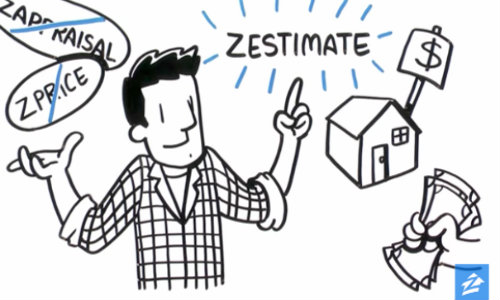Online home value estimates continue to shake up the industry, and they are only going to have a bigger role in the homebuying and selling process as technology improves.
Though these tools might cause headaches for agents, it’s clear that they will be a part of the job that real estate professionals will have to contend with for years to come. With that said, here are the six things you need to know about online home estimators:
- They’re getting smarter. Zillow’s Zestimate tool, the most well-known and controversial of the online home price estimators, has implemented machine learning and artificial intelligence to make its home assessment algorithm even smarter. And it appears to be working. A new artificial intelligence tool allows Zillow’s algorithm to determine how nice a home’s interior is, which has boosted the Zestimate’s accuracy by 15 percent when used, according to Inman. The new tool allows the computers to scan images of a home’s interior to determine its value. Zillow is testing the product in the Seattle area but has plans to roll it out further.
- They’re here for good. Chicago-area homeowners have sued Zillow, claiming the Zestimate devalued their home by giving out false valuations. But a U.S. District judge in May threw out the suit, saying the Zestimate is merely a calculation of a home’s market value, and it is correctly labeled as such on Zillow’s website. Meaning: the Zestimate and similar tools are here to stay.
- Not all estimate tools are the same. There are at least a half dozen automated home estimate tools on the web, and many of them use different equations to find a home’s value. Redfin, for example, calculates values based on MLS data, neighborhood factors and home-specific data, according to a new study of the tools by the National Association of Realtors. Homes.com uses mainly public records data. We’ve discussed Zillow’s model before. These different data points cause estimates to vary greatly, and a client should understand that before taking action to buy or sell a home.
- Trulia and Zillow’s are the same. Both Trulia and Zillow offer online automated estimates. Though they do not produce identical results, their estimates are likely to be very similar, according to NAR’s report. That’s because Trulia is owned by Zillow. “Having a separate Trulia price estimate is more a marketing gimmick to give the impression to consumers that there is more competition, though it is just the same company trying to establish a greater market share, hence the ability to extract a higher fee from real estate professionals,” NAR explained.
- Some estimates are available by request. Some online home estimate tools might not be known to your clients, but they can be just as accurate or even more accurate than other popular tools. These estimates are request-only because they often require user inputs. However, what other factors play into the evaluation are not entirely known, according to NAR.
- They have not supplanted professional appraisals. These tools might give buyers and sellers a starting point to contemplate their decision, but a professional agent and appraiser is still needed if the job is to be done correctly, according to NAR. “With the knowledge of where to find home value estimates online, it is important to note that these home value estimates are not interchangeable with formal appraisals or comparative market analyses, and they cannot be used as a basis for a loan,” the report reads. “Most of these sites, if not all, reiterate the importance of consulting the expertise of real estate professionals to receive an in-depth and in-person analysis of the property and the local market.”
To read NAR’s report on automated home estimates, click here.

